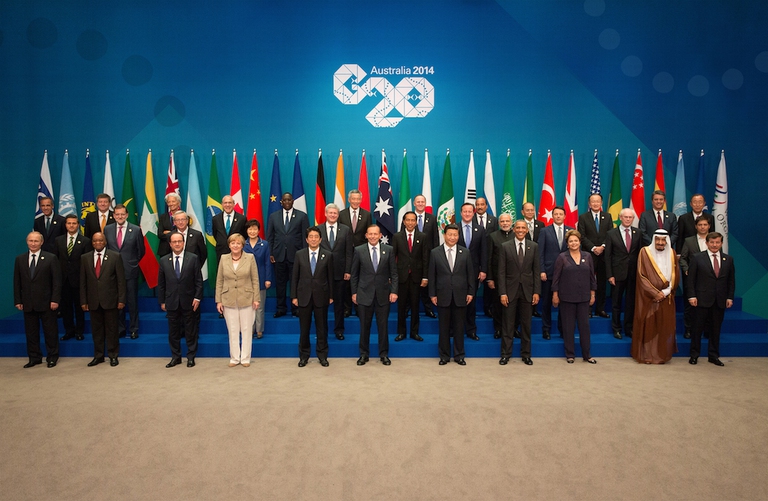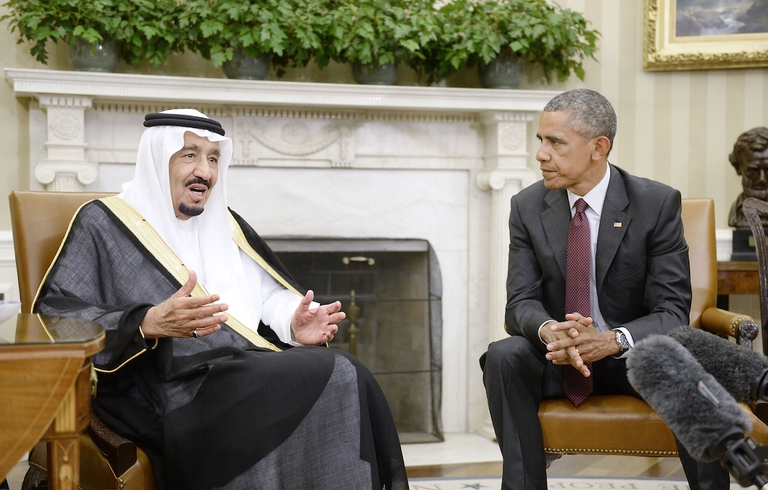
The 26th edition of the United Nations Climate Change Conference, COP26, will be held in Glasgow, Scotland in November 2020. The pre-COP will take place in Milan, Italy.
La monarchia araba ha annunciato un calo delle emissioni di gas ad effetto serra. A patto però che i profitti dalle esportazioni di petrolio restino alti…
Just a few weeks ahead of the Paris Climate Conference (COP21), Saudi Arabia has announced its pledge to reduce greenhouse gas emissions. On 10 November, the government said it wants to “achieve mitigation co-benefits ambitions of up to 130 million tons of carbon dioxide equivalent avoided by 2030 annually through contributions to economic diversification and adaptation”. It is good news, of course, but mostly symbolically.
It’s very important that a nation that grounds its wealth on oil extraction has declared its will to fight climate change. It’s likely that the country dreaded a diplomatic isolation on environmental issues, considering that 157 countries (out of 195) submitted their pledges in view of the COP21 (Saudi Arabia has become the last country of the G20 to submit its national climate plan). However, from an “ecological” perspective, the decision is important but not particularly decisive.
Firstly, the country is responsible for 1.2% of global emissions (equal to Italy, according to data published by the World Resources Institute in 2014). Secondly, the pledges submitted are “opaque”: the document is difficult to be judged, since it doesn’t specify if promises will result in a real emission reduction, which means a decrease compared to a reference datum (e.g. a certain year). From the paper emerges the idea that the country aims to emit, in 2030, less CO2 compared with the amount that would have been emitted without corrective actions (a scenario called “business as usual”). But it is just an interpretation. The real paradox is the fact that Saudi Arabia also stressed that its pledge is dependent on a diversified economy and a “robust” oil export revenues over the coming decades, as well as that it “reserves the right” to update its plan.
According to Célia Gautier of the NGO Climate Action Network, as reported by the news agency AFP, Saudi Arabia has understood that a global transition towards renewables is unavoidable. However, it’s difficult to say if the country will accept such process aimed at giving up on fossil fuels (oil, gas, and coal) by 2050. Yet, it would be a mere strategic choice, since Saudi Arabia’s potential is undeniably huge, in terms of renewable energies exploitation.
Siamo anche su WhatsApp. Segui il canale ufficiale LifeGate per restare aggiornata, aggiornato sulle ultime notizie e sulle nostre attività.
![]()
Quest'opera è distribuita con Licenza Creative Commons Attribuzione - Non commerciale - Non opere derivate 4.0 Internazionale.
The 26th edition of the United Nations Climate Change Conference, COP26, will be held in Glasgow, Scotland in November 2020. The pre-COP will take place in Milan, Italy.
Thanks to activists, the voice of the world’s peoples resounded through the COP25 like an alarm bell. Governments didn’t reach the results they demanded, but their cries and messages were stronger than ever, reaching even those who weren’t in Madrid.
Climate change poses a risk for millions. However, women are the most vulnerable to its negative consequences: a few simple considerations by the Italian Climate Network help us perceive the global implications of this.
The COP25 ended two days late and with very few steps ahead made. Climate negotiations in 2020 will be an uphill battle as political will clearly seems to be lacking, once again.
The last ten years have been the most “exceptional” and hottest decade ever, with extreme weather hitting people and ecosystems harder and more frequently. 2019 is also on course to becoming the second or third hottest year since records began.
Unite Behind the Science: this was the title of the conference held at the COP25 on 10 December. Greta Thunberg’s presence filled the arena, but this time it was scientists’ turn to speak.
25,000 delegates meet for the COP25 from 2 to 13 December. What can we hope this UN climate change conference, whose venue was changed from Santiago de Chile to Madrid, will achieve?
100 eminent people from all over the world, including Vandana Shiva, Naomi Klein and Noam Chomsky, have signed an open letter after the disappointing results of the COP24. A call-to-arms for climate against world leaders’ indifference.
The outcome of the COP24 in Katowice left many unsatisfied. Greta Thunberg, a young Swedish environmental activist, gave a harsh, heartfelt speech addressing world leaders.









